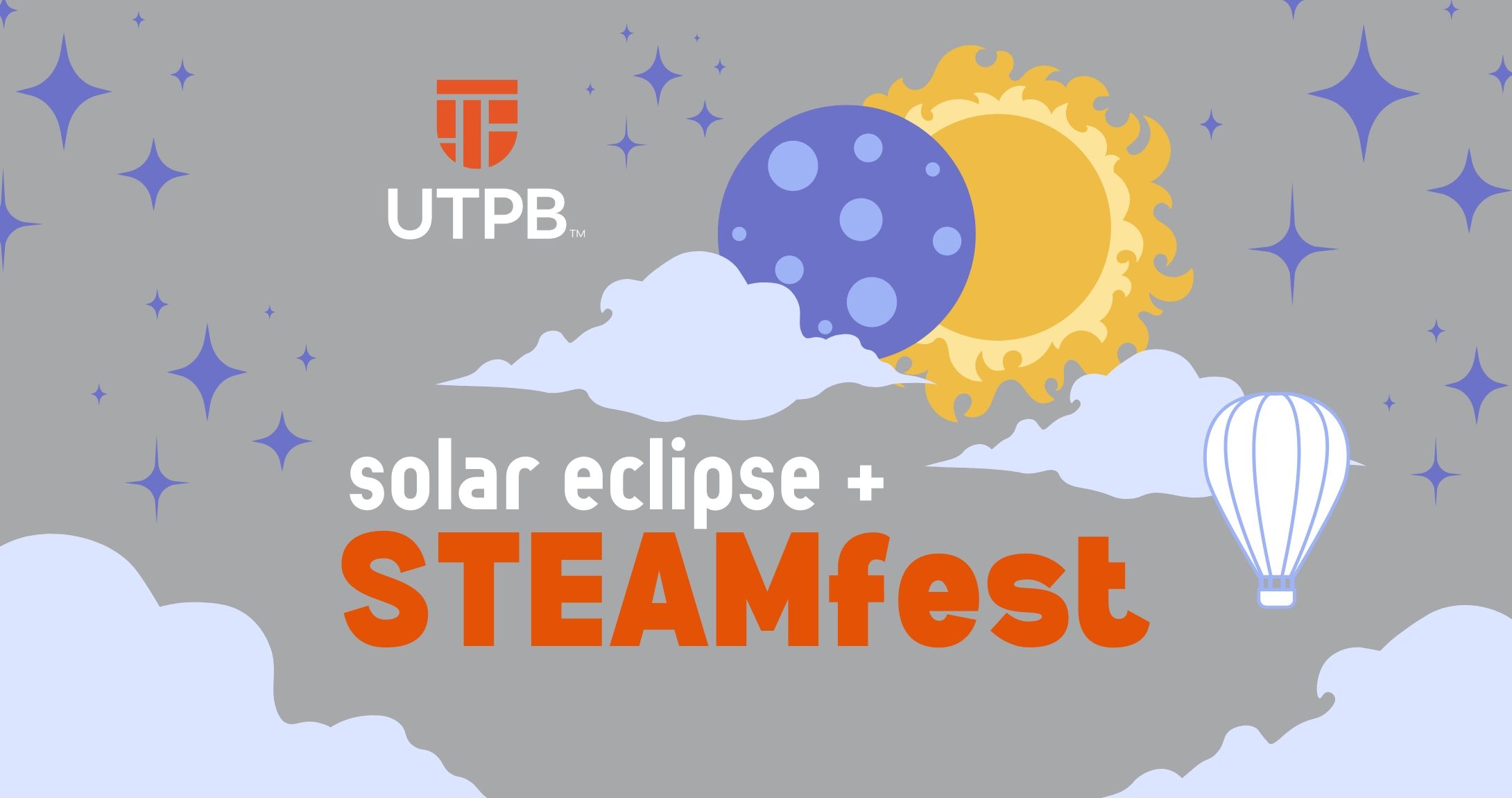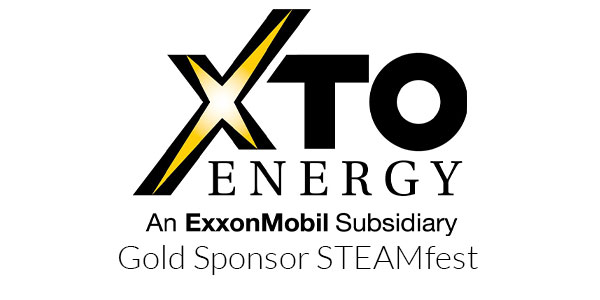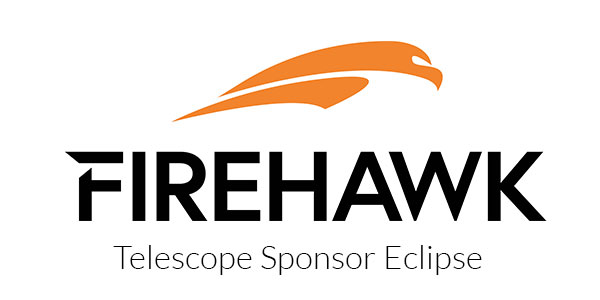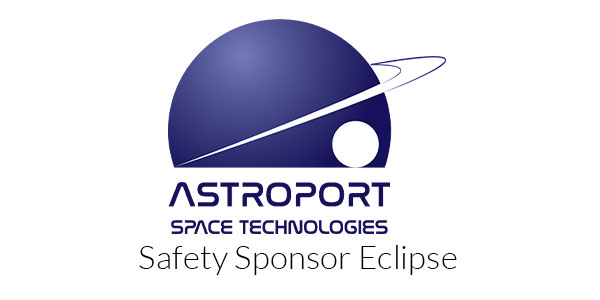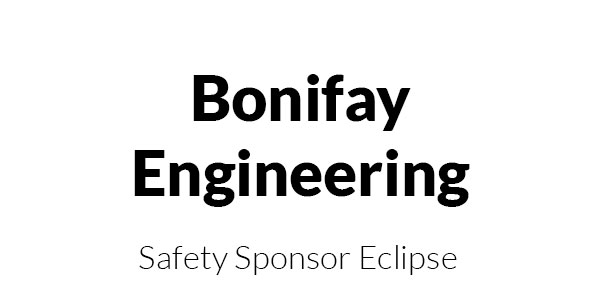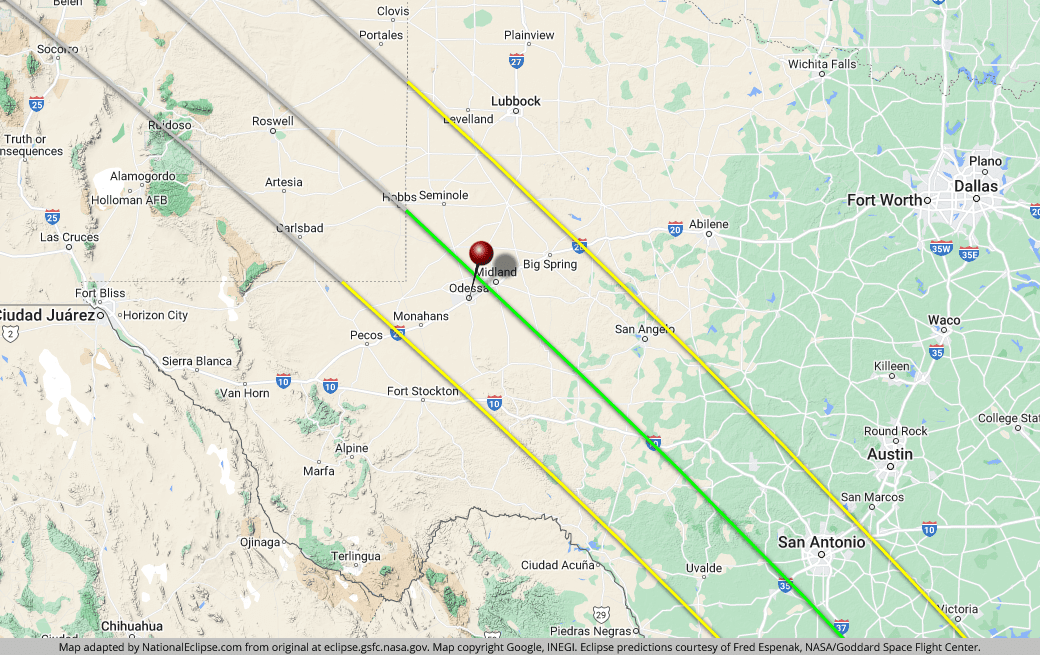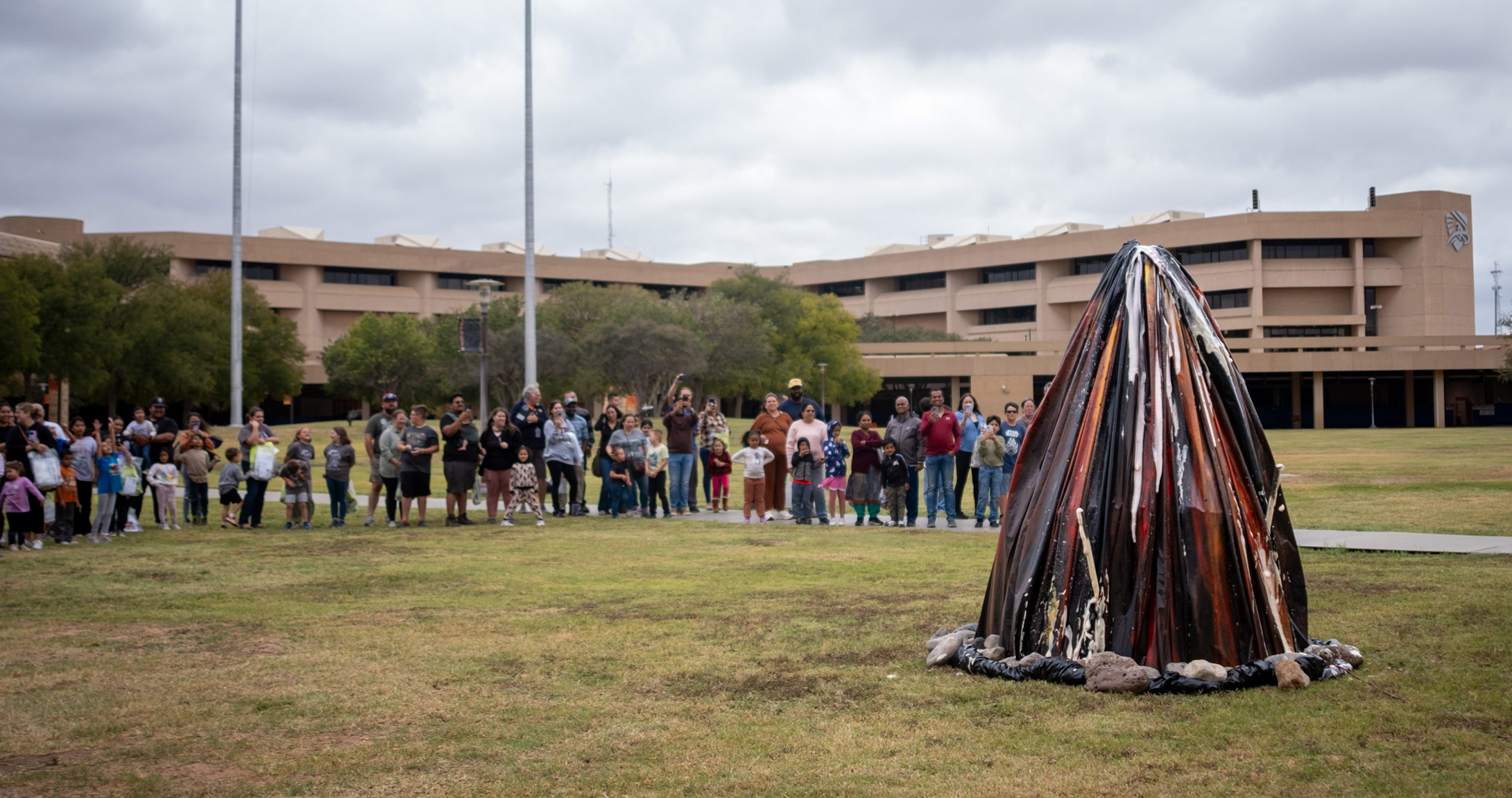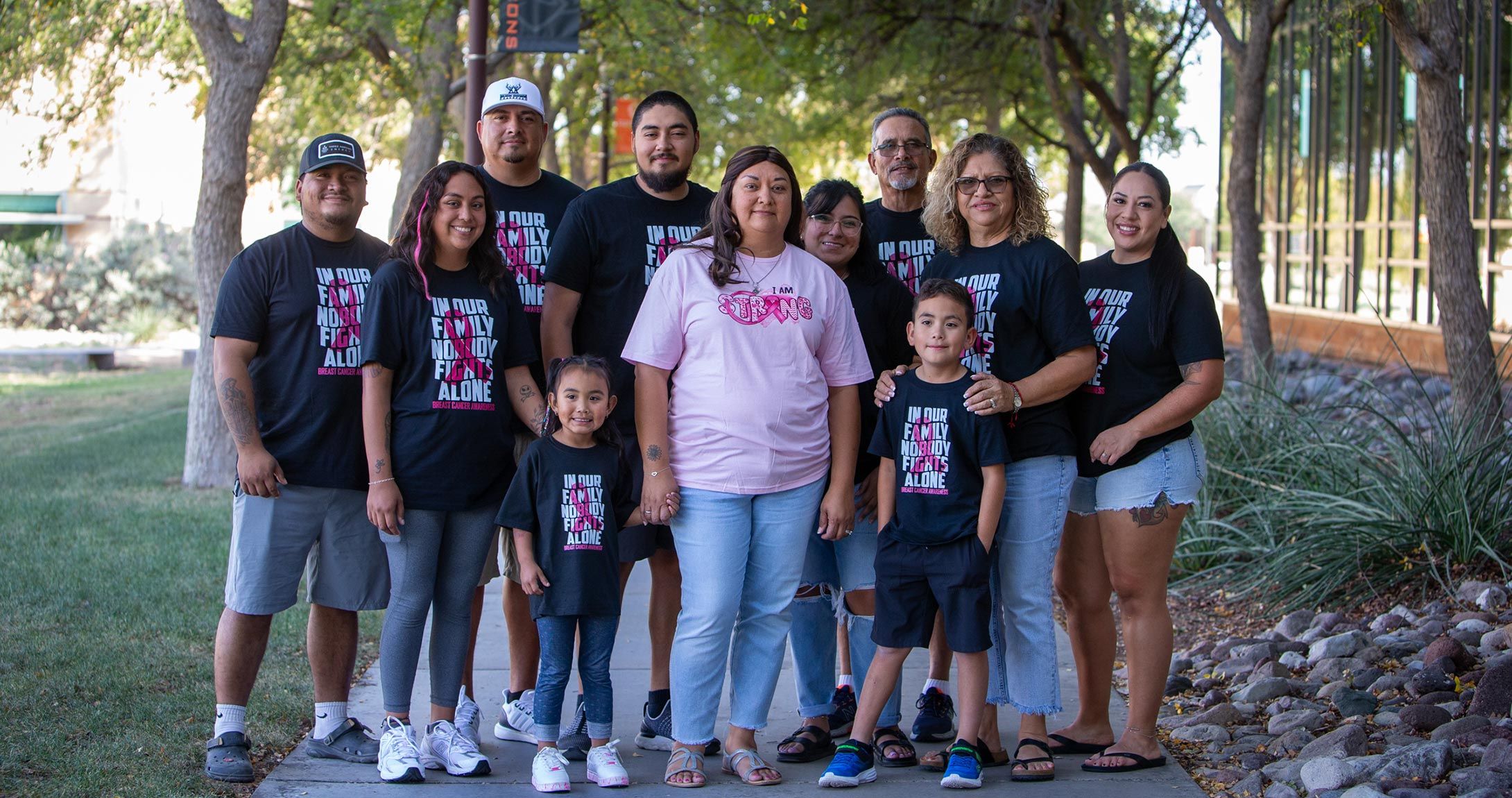The University of Texas Permian Basin is set to host an all-day event for the community to celebrate the solar eclipse.
The solar eclipse is set to happen on Saturday, October 14. The Permian Basin has been named by NASA as one of the best locations in the country to view the eclipse, so you’ll have the best seat for this event!
Here is what's happening on campus:
Friday, October 13
6:00 pm: Scientist Dr. Hugh Hudson will give a special lecture on solar eclipses at the CEED building (North, 1310 FM1788, Midland, TX 79707)
Saturday, October 14
9:30 am: Meet us at the UTPB Quad (center of campus) and the Mesa Deck (at the Mesa Building) for the best seat in the nation to watch the solar eclipse! Scientists from UTPB, NASA, and the Gordon Center will launch scientific balloons into the sky, and you'll be there for it all.
10:18am- 1:20 pm: View the eclipse at UTPB, we'll provide the safety glasses!
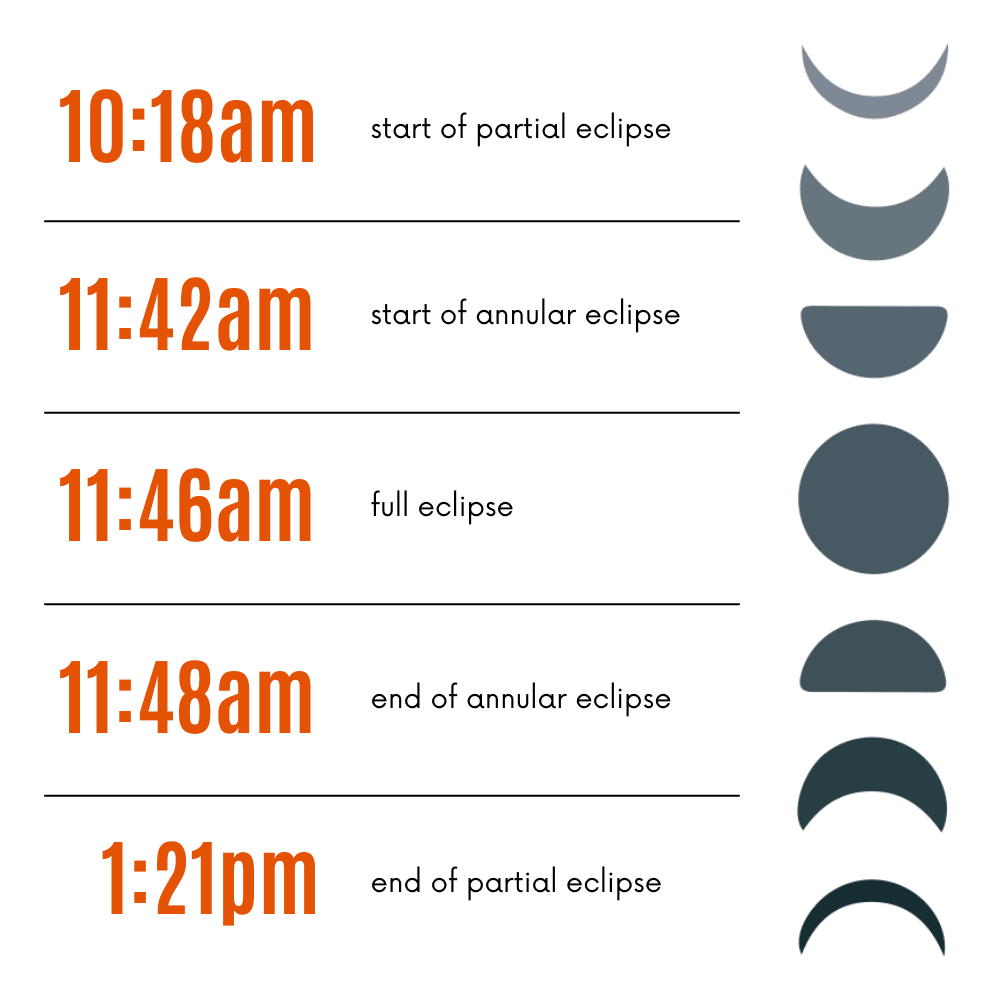
Want to volunteer?
The SunSketcher group from Western Kentucky University will be joining us on campus. They will be testing their phone app in preparation for the April 2024 eclipse. The eclipse is a unique opportunity to measure the shape of the sun. Volunteers are needed for this citizen science testing; 18+ years old & Android phone required.
Please fill out this form if you're interested in volunteering

2:00pm-5:00pm: STEAMFest- There will be interactive science and art activities for all ages!
A few things to know about the event:
- Free parking available in front of the Mesa Building
- Bring your lawn chairs and blankets to set-up on the Quad
- Food available to purchase at the Starbucks in the Library and the Mesa Market (2nd floor of Mesa Building, accessible from the Mesa Deck.)
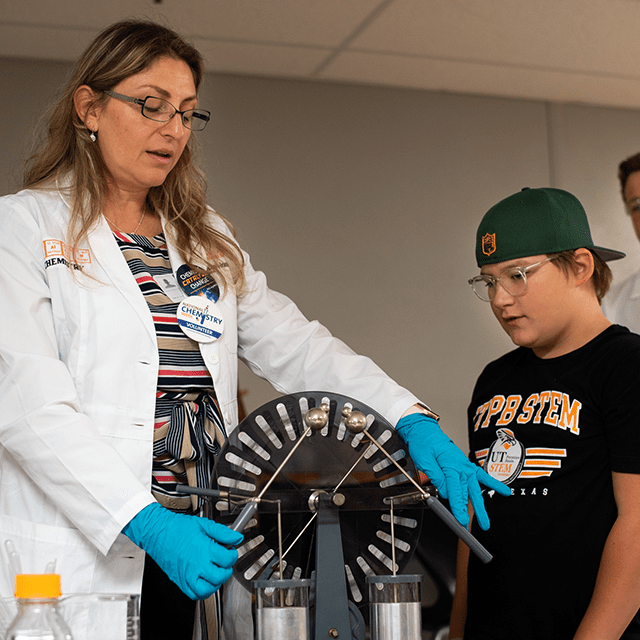

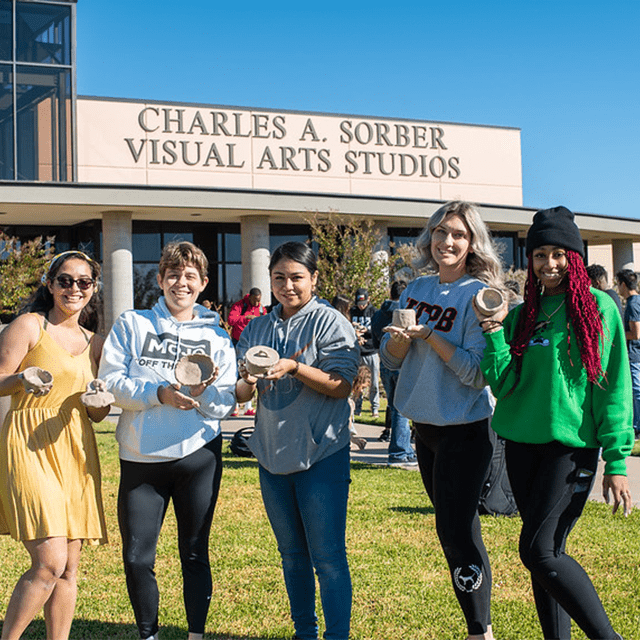
Solar Eclipse FAQ's
What is a solar eclipse?
A solar eclipse happens when the moon passes between the sun and earth which then obscures the view of the sun from a small part of the earth.
Are there any safety precautions to take during a solar eclipse?
It is never safe to look directly at the sun without specialized eye protection designed for solar viewing. When viewing a solar eclipse directly you must use “eclipse glasses” at all times. Eclipse glasses are not regular sunglasses. Sunglasses are not approved for looking directly at the sun.
NASA shares great tips about solar eclipse viewing safety.
UTPB will be handing out eclipse glasses at the watch party on campus while supplies last.
UT Permian Basin will be hosting 3 NASA research affiliated groups.
Each group will have faculty and students (high school, undergraduate, graduate).
- UTPB will be hosting the SunSketcher group from Western Kentucky University. They will be testing their phone app in preparation for the April 2024 eclipse. The eclipse is a unique opportunity to measure the shape of the sun. Volunteers are needed for this citizen science testing; 18+ years old & Android phone required. Please join us, contact Irene Perry
- UTPB will also be hosting 2 ballooning groups at the UTPB Intramural field (near the Kirk building) from the West Virginia University Space Grant Consortium and the Gordon Cooper Technology Center from Oklahoma. Both are part of the Nationwide Eclipse Ballooning Project.
- Building on the highly successful NASA and NSF-sponsored Nationwide Eclipse Ballooning Project (NEBP) implemented during the 2017, 2019, and 2020 total solar eclipses, this current effort will broaden participation of STEM learners by immersing teams from a wide range of higher education institutions in an innovative NASA-mission-like adventure in data acquisition and analysis through scientific ballooning during the October 14, 2023 annular and April 8, 2024 total solar eclipses.

Thank you to our generous STEAMfest sponsor:

